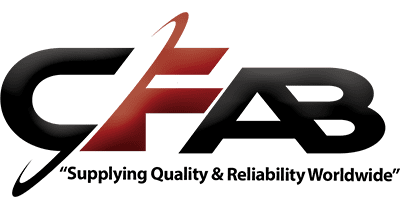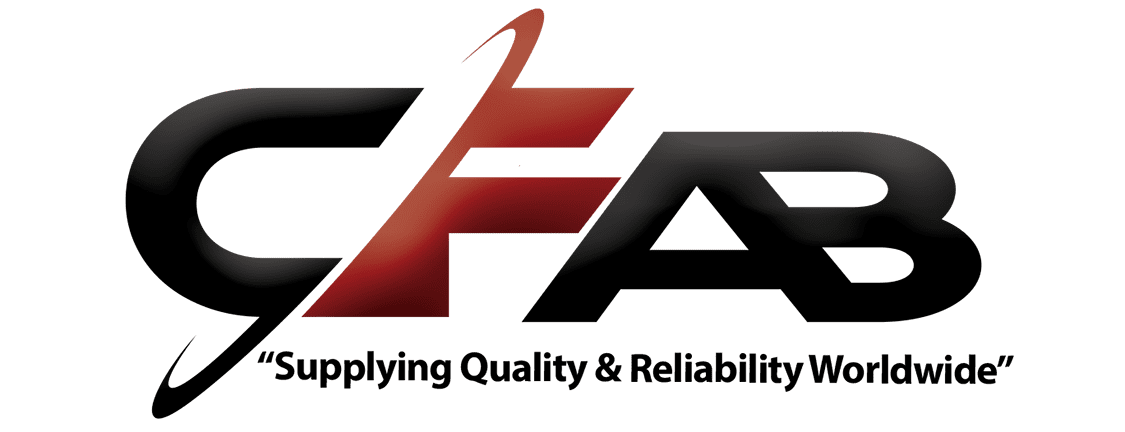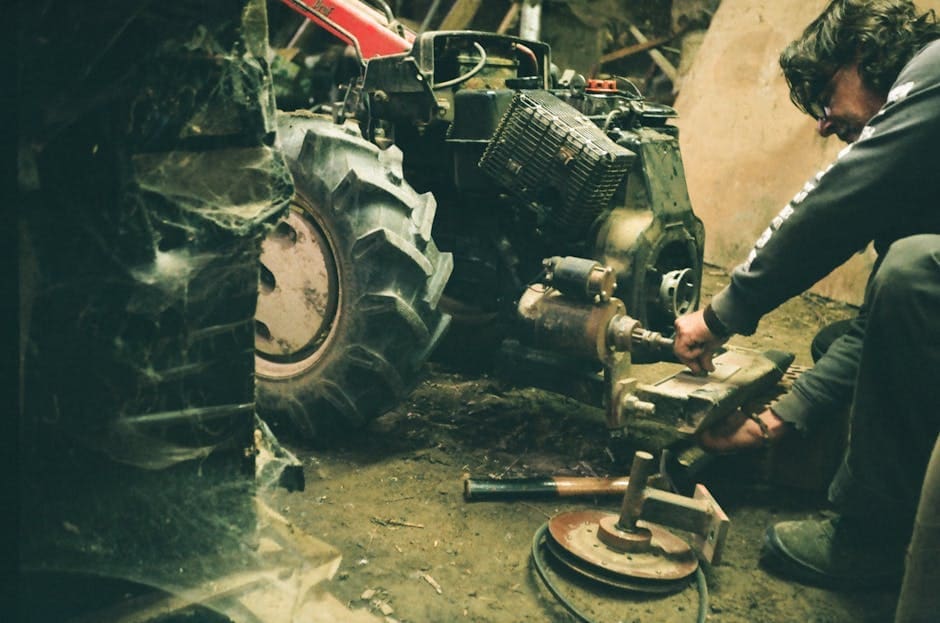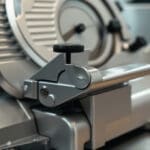Farm equipment maintenance tips are crucial for securing the efficiency and longevity of your machinery. If these aspects are top priorities for you, consider these quick essentials to keep your equipment in tip-top shape:
- Regular inspections: Check vital components like oil levels, filters, and tire pressure.
- Preventive maintenance: Clean and maintain bulk fuel tanks, change air and fuel filters, and service fuel injectors.
- Accept technology: Use IoT sensors for predictive maintenance to reduce downtime.
By following these steps, you can significantly reduce the risk of breakdowns and extend the lifespan of your valuable equipment. Maintenance not only boosts productivity but also saves money and time in the long run.
I’m Todd Cleppe, CEO & Co-Founder of CFAB Global. With over 25 years of experience in machinery maintenance and process improvement, I have helped numerous industries improve their equipment performance. My work has focused on increasing production efficiency, cutting downtime, and boosting equipment longevity—key aspects central to farm equipment maintenance tips.

Learn more about Farm equipment maintenance tips:
– agricultural machinery parts
– farm machinery parts
– used tractor parts
Importance of Farm Equipment Maintenance
Farm equipment maintenance is not just a task—it’s a necessity. Neglecting it can lead to costly downtime and reduced productivity. Let’s break down why maintenance is so crucial.
Downtime: The Costly Consequence
When farm equipment breaks down, it can halt operations. This downtime can be expensive. Statistics show that unexpected equipment failures can lead to significant financial losses. Every hour a tractor or combine isn’t working is an hour lost in productivity and potential income.
Boosting Productivity with Preventative Maintenance
Preventative maintenance is like a health check-up for your machinery. By performing regular checks and servicing, you can catch small issues before they become big problems. This proactive approach not only keeps your equipment running smoothly but also boosts productivity by ensuring your machines are always ready for action.
- Regular oil changes and lubrication are vital. Using quality products like those from Texas Refinery Corp can keep your engines purring.
- Lubricate moving parts with solutions from Graco or Kecol to reduce wear and tear.
The Role of Preventative Maintenance
Preventative maintenance involves routine tasks that prevent equipment failure. This includes:
- Checking all hitches and tires for wear and tear.
- Inspecting lights and batteries to ensure safety.
- Calibrating special equipment for accuracy and performance.
By keeping up with these maintenance tasks, you ensure that your equipment operates efficiently, reducing the likelihood of unexpected breakdowns.

In summary, investing time in farm equipment maintenance is an investment in your farm’s success. It minimizes downtime, maximizes productivity, and extends the lifespan of your machinery. Next, we’ll explore how leveraging technology can further improve your maintenance processes.
10 Essential Farm Equipment Maintenance Tips
Keep All Documents Organized
Start by organizing all your equipment-related documents. This includes maintenance records, manuals, and warranties. Having these documents at your fingertips helps track service history and warranty claims. Create a dedicated space for these papers, either physically or digitally, so you can access them quickly when needed.
Perform Regular Oil Changes
Regular oil changes are crucial for engine health. They prevent wear and tear, ensuring your machines run smoothly. Use high-quality oils like those from Texas Refinery Corp to maximize engine performance. Regularly replacing oil filters is also essential to maintain optimal engine conditions.
Lubricate Moving Parts
Lubrication reduces friction and extends the life of your machinery. Pay special attention to moving parts, as they are prone to wear. Solutions from Graco or Kecol can automate this process, ensuring consistent grease or oil application. This step is vital for maintaining efficiency and preventing costly repairs.
Check All Hitches and Tires
Inspect hitches and tires routinely. Ensure hitches are secure and free from rust or damage. Tires should be checked for proper inflation and tread wear. Regular inspections help avoid unexpected failures, enhancing safety and performance on the farm.
Inspect Any Lights and Batteries
Working lights and batteries are essential for safety. Check all lights and signals to ensure they function correctly. Inspect batteries for signs of corrosion and ensure they are fully charged. This daily routine helps prevent accidents and ensures your equipment is ready to go when needed.
Calibrate Special Equipment
Calibration ensures accuracy and optimal performance. Regularly calibrate devices like scales and thermometers to maintain precision. This practice helps in achieving better results and reduces errors in operations, leading to more efficient farming practices.
Keep Machinery Clean
Clean machinery lasts longer. Regularly remove debris and dirt to prevent corrosion and staining. A simple wash can go a long way in maintaining the appearance and functionality of your equipment. Clean machines are also easier to inspect for potential issues.
Inspect for Damage
Frequent inspections can catch damage early. Look for loose parts, strange noises, or visible wear. Addressing these issues promptly can prevent them from escalating into more significant problems, saving time and money in the long run.
Store Equipment Indoors When Possible
Proper storage protects equipment from the elements. When possible, store machinery indoors to shield it from rain, snow, and sun. If indoor storage isn’t feasible, use tarps or covers. This protection extends the lifespan of your equipment, preserving your investment.
Avoid Customizing or Modifying Engines
Resist the urge to modify engines. Modern equipment is complex, and unauthorized modifications can void warranties and reduce reliability. Consult with professionals if you consider changes to ensure they won’t harm your machinery’s performance or warranty status.
By following these farm equipment maintenance tips, you can ensure your machinery remains in top condition, reducing downtime and enhancing efficiency. Next, we’ll explore how leveraging technology can further improve your maintenance processes.
Leveraging Technology for Maintenance
Technology is revolutionizing farm equipment maintenance, making it more efficient and less time-consuming. One of the key innovations in this space is the use of Computerized Maintenance Management Systems (CMMS).
What is CMMS?
A CMMS is software that helps farmers manage maintenance tasks, schedules, and records. It organizes everything in one place, so you can easily track what needs to be done and when. This system is like having a digital assistant that reminds you about oil changes, lubrication, and inspections.
Benefits of Using CMMS
-
Automated Scheduling: CMMS can automatically schedule maintenance based on equipment usage or time intervals. This means you won’t forget important tasks like oil changes or calibrations.
-
Maintenance History: The software keeps a detailed record of all maintenance activities. This history is invaluable for spotting patterns or recurring issues, helping you make informed decisions about repairs or replacements.
-
Inventory Management: CMMS also tracks spare parts and supplies. It alerts you when stock is low, preventing downtime due to missing components.
-
Real-Time Alerts: Receive alerts and notifications for upcoming maintenance tasks. This proactive approach reduces the risk of unexpected breakdowns.
Real-World Impact
Consider a farm that adopted CMMS last year. The farm saw a 30% reduction in equipment downtime and saved thousands in repair costs. By keeping machines in optimal condition, they boosted productivity and profitability.
Integrating with Other Technologies
CMMS can integrate with other technologies like IoT sensors and AI diagnostics. These integrations provide real-time data on equipment health, allowing for predictive maintenance. For example, AI systems can analyze sensor data to predict when a part might fail, enabling timely interventions.

The Future of Farm Maintenance
As technology advances, expect even more sophisticated solutions. Farms will increasingly adopt automated lubrication systems like those from Graco or Kecol, which ensure consistent application of grease or oil, further reducing manual labor.
By embracing technology, farmers can streamline maintenance processes, reduce costs, and extend the lifespan of their equipment. This not only boosts efficiency but also supports sustainable farming practices.
Next, we’ll address some common questions about maintaining farm equipment to help you get the most out of your machinery.
Frequently Asked Questions about Farm Equipment Maintenance
What is the most often used equipment on the farm?
The tractor is the backbone of most farming operations. Known for its versatility, a tractor can perform a wide range of tasks, from plowing and tilling to planting and hauling. Its critical role makes it essential to keep it in top condition. Regular maintenance, like oil changes and lubrication, using quality products such as those from Texas Refinery Corp, ensures your tractor runs smoothly and efficiently.
How to clean farm equipment?
Keeping your farm equipment clean is crucial for preventing corrosion and extending its lifespan. Here’s a simple method to follow:
-
Pressure Washer: Use a pressure washer to remove dirt and debris. This tool is effective for reaching tight spots that are hard to clean by hand.
-
Detergent and Foamer: Apply a detergent using a foamer to break down stubborn grime. This step is important for removing any residues that could lead to rust or other damage.
-
Rinse and Dry: After washing, thoroughly rinse the equipment with clean water and allow it to dry completely to prevent moisture-related issues.
Regular cleaning not only helps maintain the appearance of your machinery but also improves its performance and longevity.
How do you maintain a tillage implement?
Maintaining a tillage implement involves several key steps to keep it functioning effectively:
-
Inspection: Regularly inspect for any signs of wear or damage. Pay close attention to soil-engaging components, as these are prone to wear.
-
Tires: Check the tires for proper inflation and any signs of damage. Well-maintained tires ensure the implement moves smoothly and efficiently across the field.
-
Soil Components: Examine soil components like blades and tines for sharpness and alignment. Replace or sharpen them as needed to maintain optimal soil penetration and aeration.
By following these steps, you can ensure your tillage implement remains in good working order, contributing to better soil health and crop yields.
Next, we’ll wrap up with some concluding thoughts on the importance of regular farm equipment maintenance and the role of CFAB Global in supporting your farm’s success.
Conclusion
In agriculture, maintaining the health and efficiency of your machinery is not just a task—it’s a necessity. At CFAB Global, we understand the critical role that well-maintained equipment plays in your farm’s productivity and success. That’s why we offer our Machine Reliability Program, a custom solution designed to improve the performance and lifespan of your agricultural machinery.
Our program is not a standard, one-size-fits-all solution. We work closely with each client to develop custom strategies that address unique challenges and needs. By focusing on predictive maintenance, we help prevent breakdowns before they occur, ensuring that your operations run smoothly and efficiently.
Why choose CFAB Global?
- Expertise: Our team of specialists brings years of industry experience to provide the highest level of support.
- Customized Solutions: We tailor the Machine Reliability Program to meet your specific machinery needs and challenges.
- Increased ROI: By reducing downtime and extending machinery lifespan, we help maximize your return on investment.
Whether you’re dealing with tractors, tillage implements, or specialized equipment, CFAB Global is committed to providing the support you need to keep your farm running at peak performance. Our dedication to your success is unwavering, and we strive to build lasting relationships with our clients.
For more information on our services and how we can help you achieve better efficiency and longevity in your farm equipment, visit our Agricultural Machinery Parts page. Let CFAB Global be your trusted partner in agricultural success.
